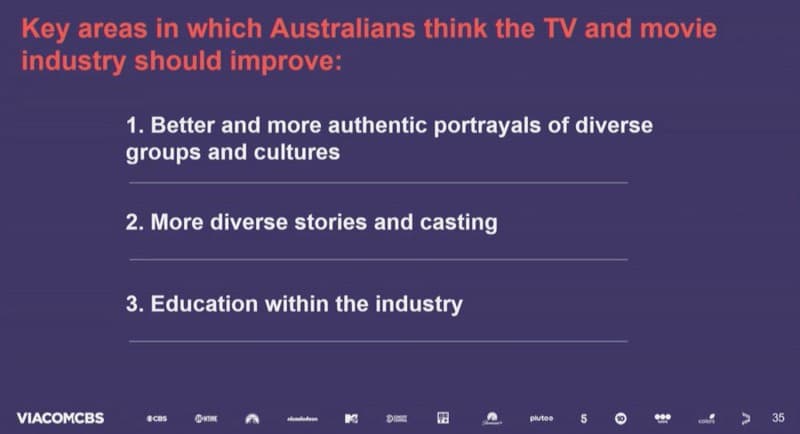Paramount has released the findings from its Reflecting Me: Global Representation study, presented by Gareth Tomlin, general manager, data, insights, and analytics at Paramount ANZ.
The study examined perceptions of on-screen representation and diversity – encompassing ethnicity, gender identity, sexuality, disability and more.
The global company conducted surveys and interviews with more than 15,000 people from 14 other countries, including Australia and between 13 to 49.
On-screen representation in TV shows and movies matters to Australians and audiences worldwide. The report found 84% of Australians believe companies should commit to increasing diversity and representation on-screen, and 83% believe the same off-screen.
While 74% of Australians noted the importance of diversity, the study indicated that diversity matters more among Australians from Asian, African, Middle Eastern or Oceanian backgrounds at 78%. While 84% of First Nations People also agreed on the importance.
Tomlin said of the study: “Representation matters because it has an impact on the real world and real people,” as he shared that the survey found 84% of Australians agreed that the portrayal of groups and identities in TV shows and movies influence and shape perceptions about them, often at a young age, in the real world.
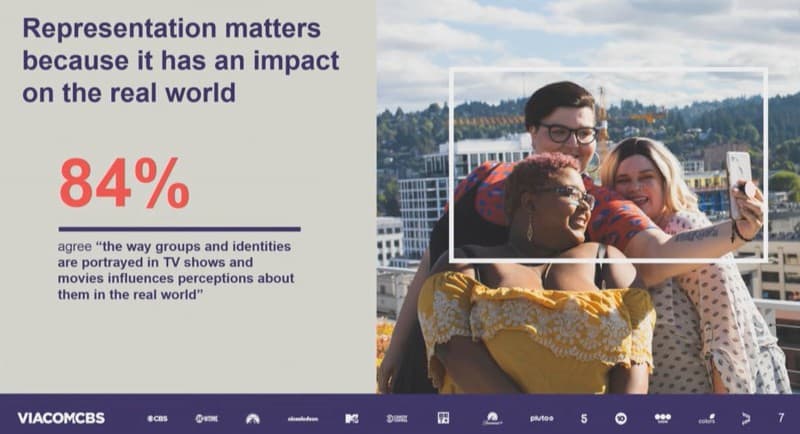
The accuracy of portrayal is essential, particularly for people of marginalised communities who are caricatured on-screen.
Reasons also varied for those who felt poorly represented on-screen, ranging from race, age, religion or beliefs, gender, disability, and economic status.
Tomlin noted that TV shows and movies are aspirational with characters in nice homes, with nice cars, but that it does not reflect the reality of most people.
“Representation is as complex as our individual identities are, and the intersectional nature of our lives means that one person could feel underrepresented across many of these aspects,” he said.
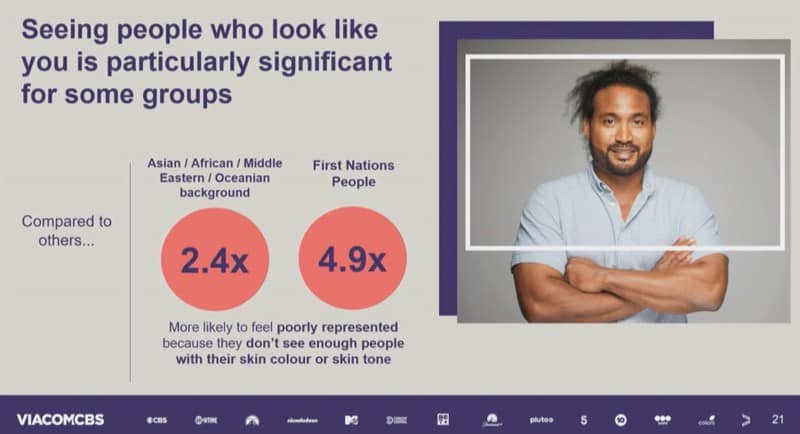
The Paramount study highlighted everyone’s lived experiences rarely fit neatly into a box. Tomlin added: “We found among those that feel poorly represented, 44% said it was a reason other than their sexual orientation, 68% of people with a disability who feel poorly represented said the same.
“They may feel poorly represented because of their race, their gender identity, or their economic status. In short, there is rarely just one reason for why people feel poorly represented were all far more complex than that.”
The report also examined the impact of damaging and negative singular narratives, such as low-income earners or overweight people, are repeatedly played out on screen and how it has real-world consequences.
It found that people from ethnic backgrounds are 2.4 times more likely to feel poorly represented because they don’t see enough people who look like them. The number rises to 4.9 times more likely for First Nations people.
Appearance conventions also impact people with a disability as 44% of those with a disability say they don’t see enough people with their body type, and 37% say they don’t see enough people that look like them.
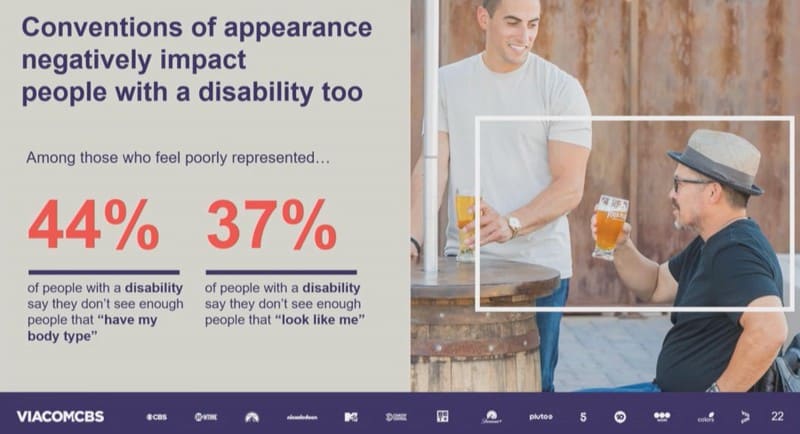
Representation also reflects the day-to-day lives seen on-screen – from portrayals of home life, socio-economic status, behaviour and even accent.
Tomlin said: “representation is complex and goes beyond just seeing a person from a certain background, community, or identity. It’s also about making sure enough people on screens are living the same lives as their viewers.”
“What all this adds up to is that reflecting authentic stories, rather than perpetuating stereotypes, is vitally important. Lazy for trails that rely on stereotypes are hugely damaging to audiences.
“Poorly represented people are less likely to feel like they are represented as successful and more likely to feel represented as lazy or dumb. This is important because this misrepresentation shapes society’s expectations and so impacts their daily lives,” he added.
Tomlin noted that through the research, they found that poor representation made people feel defeated rather than angry or inspired to change.
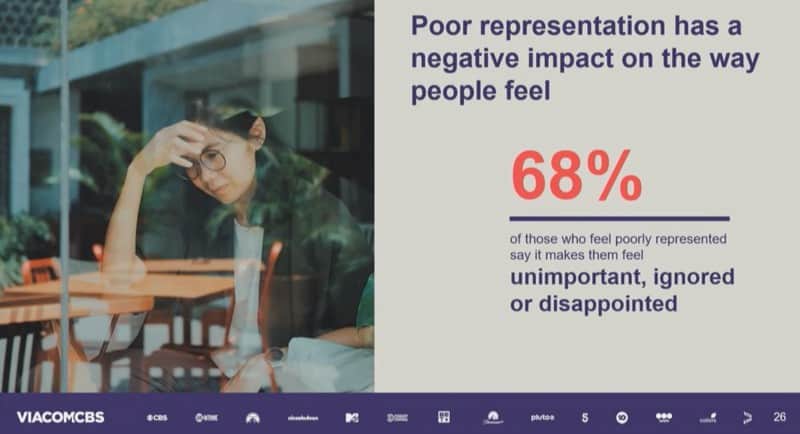
The Paramount report found 68% of poorly represented Australians felt unimportant, ignored or disappointed. It also has broader impacts on their self-esteem, confidence, sense of belonging and opportunities available to them, as well as their connections to their true self and their cultural heritage.
To move forward, TV shows and movies need to be more diverse and have accurate and authentic portrayals, something with 81% of those surveyed agreed.
Looking ahead, Tomlin noted three key areas respondents pointed out that the TV and movie industry needed to improve on: the better and more authentic portrayals of diverse groups and cultures, more diverse stories and casting, and increased education in the industry.
He said: “Although there is plenty to do across the industry, there is optimism for a better future. When asked if representation will get better or worse in the next five years, most Australians chose better, about 48%, only 12% think it will get worse.
“With that optimism, though comes the responsibility for media companies to do more now to ensure that representation improves,” he concluded.
